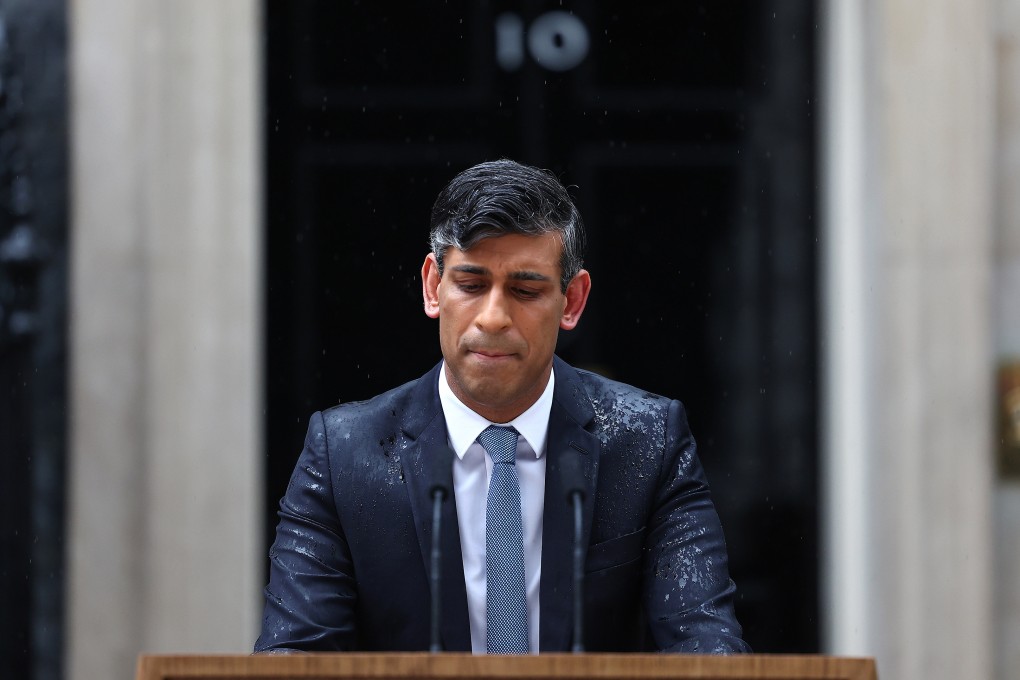Opinion | Chances are that Rishi Sunak will lose his summer UK election gamble
- While the Conservatives should never be underestimated as a political force, the party is badly divided heading into the six-week election campaign. Try as he might, Sunak has been unable to change the UK’s political weather

This will be the United Kingdom’s first July national election since 1945. That year was a very poor one for the Conservatives with wartime leader Winston Churchill losing by a landslide to Labour.
This offers an outside possibility that Labour might win a majority comparable to 1945, or its last landslide year in 1997. To be sure, polls may tighten in the coming weeks, but the direction of travel appears clear towards Labour being the largest party again in the House of Commons.
First, UK inflation has fallen from double digits last year to 2.3 per cent, near the Bank of England’s 2 per cent target, and the lowest level in around three years. Second, after a series of tax cuts in recent budgets, it is unlikely that the UK public purse can stretch any further in an autumn fiscal event.
